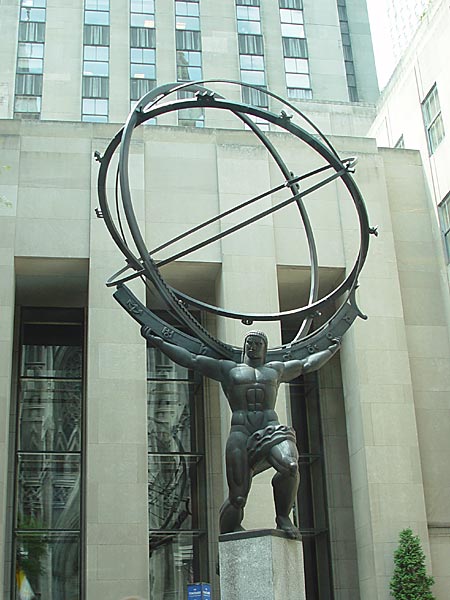Patron-Age
When Howard Roark was first hired by Keating, he was hired because Keating new him- he ignored the fact that he got kicked out of architecture school, and he hired him because Keating new that he would “build things the way he would have wanted them built.” To be honest, it was probably the only good decision Keating made throughout the book. It was nepotism, pure and simple. Nepotism is for the private sector that patronage is for the political system.
I had a nightmare last night- I was nominated to the Supreme Court of Canada. During my "Parliamentary Review" the questioners kept asking me why I left private practice. When I said it was because I liked GR more, they all scoffed. To think, one heckled, that a judge could be involved in politics. Ultimately, when I did ascend to the bench, they didn’t have a Santa outfit that fit me so Bev lent me hers. How emasculating.
In the real world, the Justice Minister just appointed the co-chair of the Tories New Brunswick team as a judge. Patronage is screamed by every person who wants you to listen. Patronage is bad, and it flies in the face of the spirit of accountability. This is the second example the Tories have faced in as many months. The last one was an outcry over the appointment of a long-time Tory donor to a post that paid a whopping $1 per year. That investment did not pan out so well, did it?
If, g-d forbid, I am ever in a position of authority that allows the appointment of people to important positions, not only am I going to rely on patronage, I am going to make the case that defends the existence of it. The first line would be something like “Oh, you should have seen the collection of my slimy friends who didn’t get a job.”
Of course, there are limits, and I am specifically NOT talking about the awarding of contracts. I am talking about positions of trust where people, not their resumes, are important. I know a lot of people, and it is only because I know them that I am confident that they could do these jobs. Most positions that require judicious decision making require a “je ne sais quoi” that only the appointor can truly appreciate. You want the appointee to make the same decisions that you would make if you had the time to make them. It is based on trust. I trust the people I know to do that.
Ironically, there are a lot of people I know who I would specifically NOT trust to do those types of jobs. In a shocking turn of real world events, they are often foisted into positions of significant public trust and when they are asked questions by Senate Committees they say things like “Oh, we don’t count those as donations.”
When you are in charge of something, and somebody asks you about something else entirely, your answer should be “well Senator, that is not in my official purview.” Who gives this guy advice?
I had a nightmare last night- I was nominated to the Supreme Court of Canada. During my "Parliamentary Review" the questioners kept asking me why I left private practice. When I said it was because I liked GR more, they all scoffed. To think, one heckled, that a judge could be involved in politics. Ultimately, when I did ascend to the bench, they didn’t have a Santa outfit that fit me so Bev lent me hers. How emasculating.
In the real world, the Justice Minister just appointed the co-chair of the Tories New Brunswick team as a judge. Patronage is screamed by every person who wants you to listen. Patronage is bad, and it flies in the face of the spirit of accountability. This is the second example the Tories have faced in as many months. The last one was an outcry over the appointment of a long-time Tory donor to a post that paid a whopping $1 per year. That investment did not pan out so well, did it?
If, g-d forbid, I am ever in a position of authority that allows the appointment of people to important positions, not only am I going to rely on patronage, I am going to make the case that defends the existence of it. The first line would be something like “Oh, you should have seen the collection of my slimy friends who didn’t get a job.”
Of course, there are limits, and I am specifically NOT talking about the awarding of contracts. I am talking about positions of trust where people, not their resumes, are important. I know a lot of people, and it is only because I know them that I am confident that they could do these jobs. Most positions that require judicious decision making require a “je ne sais quoi” that only the appointor can truly appreciate. You want the appointee to make the same decisions that you would make if you had the time to make them. It is based on trust. I trust the people I know to do that.
Ironically, there are a lot of people I know who I would specifically NOT trust to do those types of jobs. In a shocking turn of real world events, they are often foisted into positions of significant public trust and when they are asked questions by Senate Committees they say things like “Oh, we don’t count those as donations.”
When you are in charge of something, and somebody asks you about something else entirely, your answer should be “well Senator, that is not in my official purview.” Who gives this guy advice?


0 Comments:
Post a Comment
Subscribe to Post Comments [Atom]
<< Home